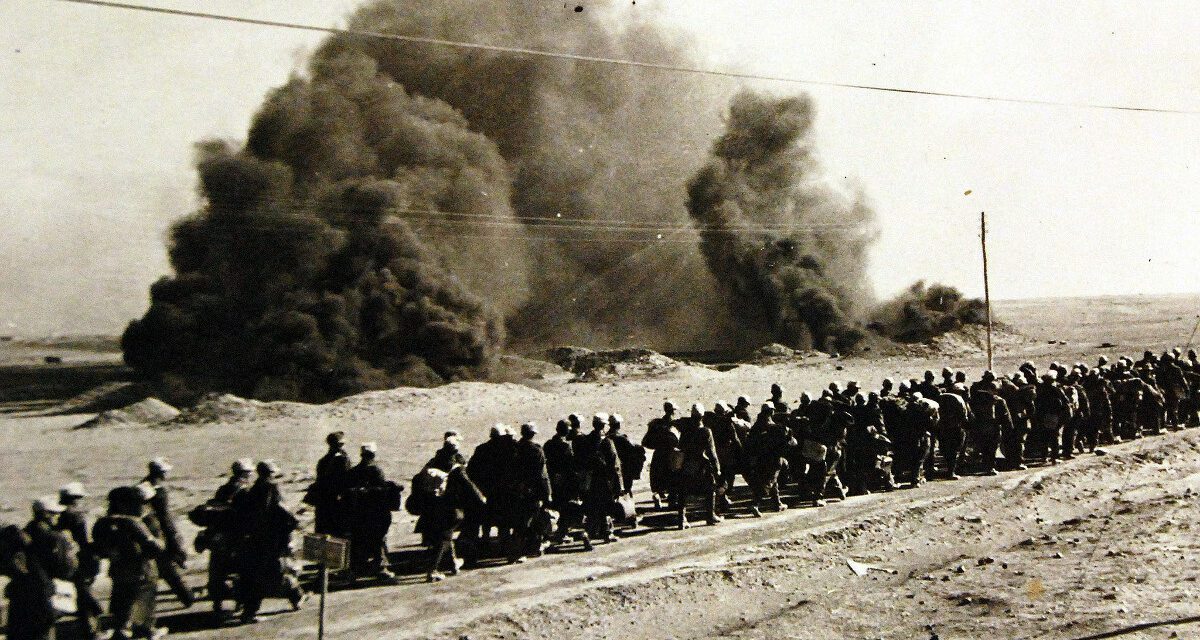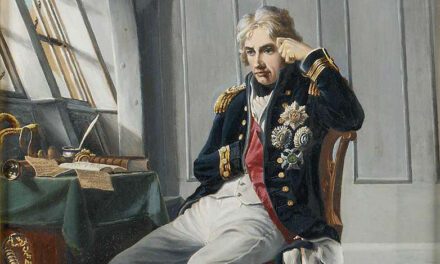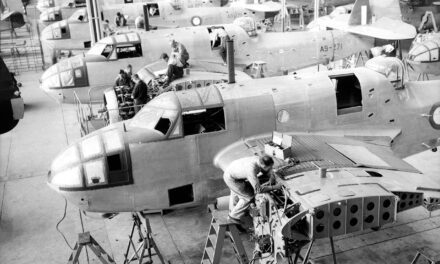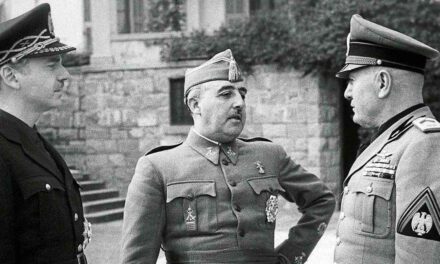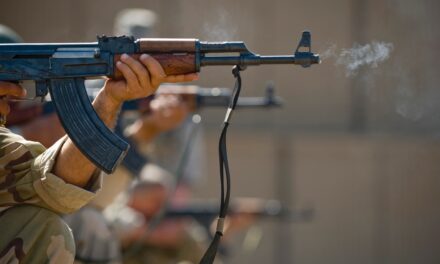North Africa in WW2: Total War with Honour?
Reading time: 8 minutes
The North African campaigns during the Second World War have a reputation for being “clean” wars, free from the atrocities we see when studying the Eastern front or the Pacific theatre. However, when we look a little more closely, we can see this romanticised image is a little tarnished in places; we’ll take a look at what the historical record can tell us, as well as some details shared by Australian veterans of the conflict.
By Fergus O’Sullivan
Among history buffs, the North African campaigns have taken on a reputation as being relatively clean. It’s almost presented as a game, where the two sides chase each other with tanks across the desert in a high-stakes game of tag. In the end, the good guys win, but both sides play the game fairly.
The “players” of this game are also shown in a fairly positive light: The German commander, Field Marshal Erwin Rommel, is portrayed as a swashbuckling adventurer — helped in no small part by his movie-star good looks — while British and Commonwealth soldiers are shown to have held him back with little more than pluck and tenacity.
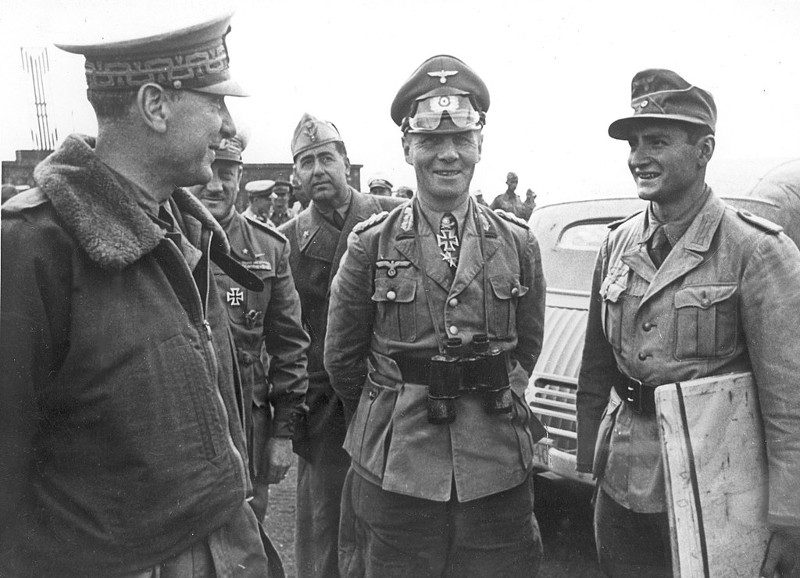
An Image Etched in Sand
In this portrayal, the horrors of war are mentioned, but usually as a footnote. The question is, of course, where this image comes from. Some of it naturally comes from propaganda. One good example is how British and Commonwealth troops were lionized after the siege of Tobruk, when they held out for 241 days against almost relentless German assaults.
The defenders became known as the Rats of Tobruk and many stories were told of their upbeat tenacity. As impressive as it was, many second-hand accounts of the siege will gloss over the hardships these men endured and focus mostly on the heroism and tenacity shown.
At the same time, not everything can be cynically deconstructed. Besides stories presented in a way to boost morale or create a positive image of the struggle, there are also some genuinely impressive tales of humanity during wartime. One of the most memorable is the story of how the British air force honoured Italo Balbo, an Italian air marshal who was shot down by his own side.
Upon hearing the news of Balbo’s death, the local RAF commander ordered one of his own planes to fly over a nearby Italian airfield and drop a wreath with the following message: “The British Royal Air Force expresses its sympathy in the death of General Balbo — a great leader and gallant aviator, personally known to me, whom fate has placed on the other side.”
There’s no doubt this was a gallant gesture and one that hearkened back to medieval times, when knights are reputed to have greeted each other on the battlefield. These kinds of stories add some lustre to the North African campaigns, especially compared to the fighting elsewhere during the Second World War.
The desert seems almost tranquil of you compare it to the Pacific Theatre — no mass slaughter as we see during the Rape of Nanjing, no atomic bombs incinerating thousands of civilians in a single second. We won’t even mention the Eastern Front and its brutality, with prisoners of war either shot or put to work as slave laborers, not to mention the wholesale slaughter of the region’s Jews.
War Is Hell
However, this way of looking at this conflict, popular in documentaries, belies one simple fact: war is hell. No matter how chivalrous your opponent is, you’re not going to care much if your tank is hit by a shell and proceeds to brew up, cooking you and your mates alive. Many of the stories we’ve covered in the Australians in the Mediterranean series reflect this: while the veterans are proud of their accomplishments, they don’t miss war, nor would they wish it on anybody else.
One of the best examples is probably Oriel Ramsay, a seaman on the HMAS Sydney, who features prominently in our article about the battle at Cape Spada. In 1941, the Sydney had sunk the Italian cruiser Colleoni in a short battle. After the battle, the Sydney went to the wreck to try and save any surviving Italian sailors.
However, this act of nobility left Mr. Ramsay scarred for life: while trying to pick up an Italian crewman, he realized he was holding on to just half of him. Mr. Ramsay describes it as “the worst thing that ever happened to me” and becomes audibly upset, even 60 years after it happened.
Horrible stories like Mr. Ramsay’s aren’t unique, of course, and the recollections in the Australians at War Film Archive are littered with examples like this. While these videos are priceless sources when it comes to what happened, they’re also stark reminders of how bad things can get in wartime.
War Crimes in North Africa
As for war crimes, it’s certainly true that North Africa saw fewer atrocities committed than in other theatres. However, that doesn’t mean that none took place. The Italians especially committed many atrocities against civilians and prisoners of war in Libya, with Jews especially on the receiving end of cruel, inhumane treatment.
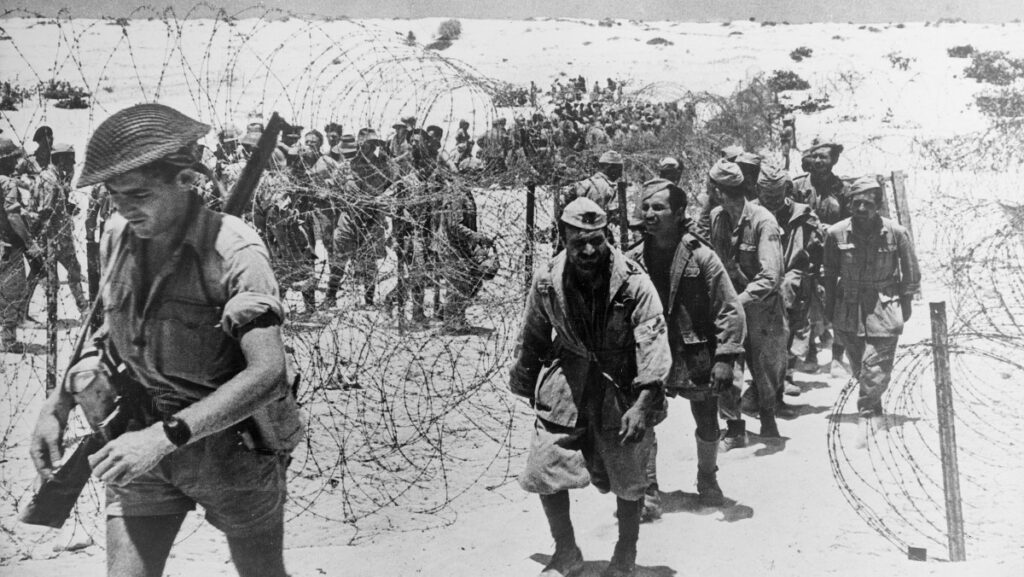
In fact, when listening to recollections of Australian veterans, the poor treatment of prisoners by the Italians is a recurring theme.
Lloyd Moule from Deepwater, New South Wales recalls that the Germans were decent enough to him, saying that this was because of an order of Rommel’s which came down to “treat them as how you wanted to be treated yourself.” The Italian fascists, though, he said, were “a bit nasty,” though in almost the same breath he heaps praise on the Italian partisans who freed him.
Mr. Moule isn’t very forthcoming with details of his internment beyond that. Horace Fordyce from Melbourne, in contrast, can recall a lot more about his experiences in a prisoner-of-war camp in Italy, saying the overall experience was “horrible.” For one, the camp, near Lecce, was infested with bed bugs and for another there was very little food. In fact, when the POWs were taken for a walk, Fordyce tells a story about how he and his mates were able to steal a chicken, smuggle it into camp and eat the bird before the guards found out.
The North African Holocaust
It wasn’t just the Italians that had a poor track record: though the Germans were kind enough to Allied prisoners — though Mr. Moule did have his watch stolen when he was captured — they were brutal to everybody else. For example, members of the British Army’s Jewish Brigade — made up of Palestinian Jews as well as ones that had fled Nazi terror in Europe — could expect to be executed by the Afrika Korps if captured.
While Rommel’s image may be that of an honourable man, he was a committed Nazi and was more than happy to help persecute local Jews. The Tunisian and Libyan Jewish communities suffered mightily under first Italian and then German occupation. In Tunisia, they were used as forced labour to build fortifications, while Libya had the dubious honour of hosting its own concentration camp for the roughly 3,500 Jews that lived in the territory.
Further west in Algeria and Morocco, the Vichy regime also established labour camps, where conditions were simply brutal. Prisoners — civilian and military, Jewish and Gentile — were forced to work in the blistering heat and subjected to all manner of inhumane punishments if they disobeyed.
Allied War Crimes
Of course, it wasn’t just the Axis forces that broke the rules, though reports of Allied war crimes are far fewer. The worst seem to be the sinking of the hospital ship Arno off the coast of Tobruk in 1942, as well as the actions of the submarine HMS Torbay, which on several occasions attacked and murdered the floundering crew of the ships it had sunk. Its commander was reprimanded for his actions.
Total War with Honor
There is no doubt that the North African campaigns were waged far less brutally compared to other wars and locations. However, that’s not to say they were fought cleanly, either. The Axis especially brought their own brand of brutality to North Africa and visited untold horrors upon the people that lived there.
Add to that the poor treatment of POWs, and a far less rosy picture of the North African campaigns emerges, one where “total war” means that even civilians and disarmed combatants were fair game.
Podcasts on this topic
This project commemorating the service by Victorians in the Mediterranean theatre of WW2 was supported by the Victorian Government and the Victorian Veterans Council. Sign up to the newsletter at the bottom of the page to be notified when the next article in this project is released.

Articles you may also like
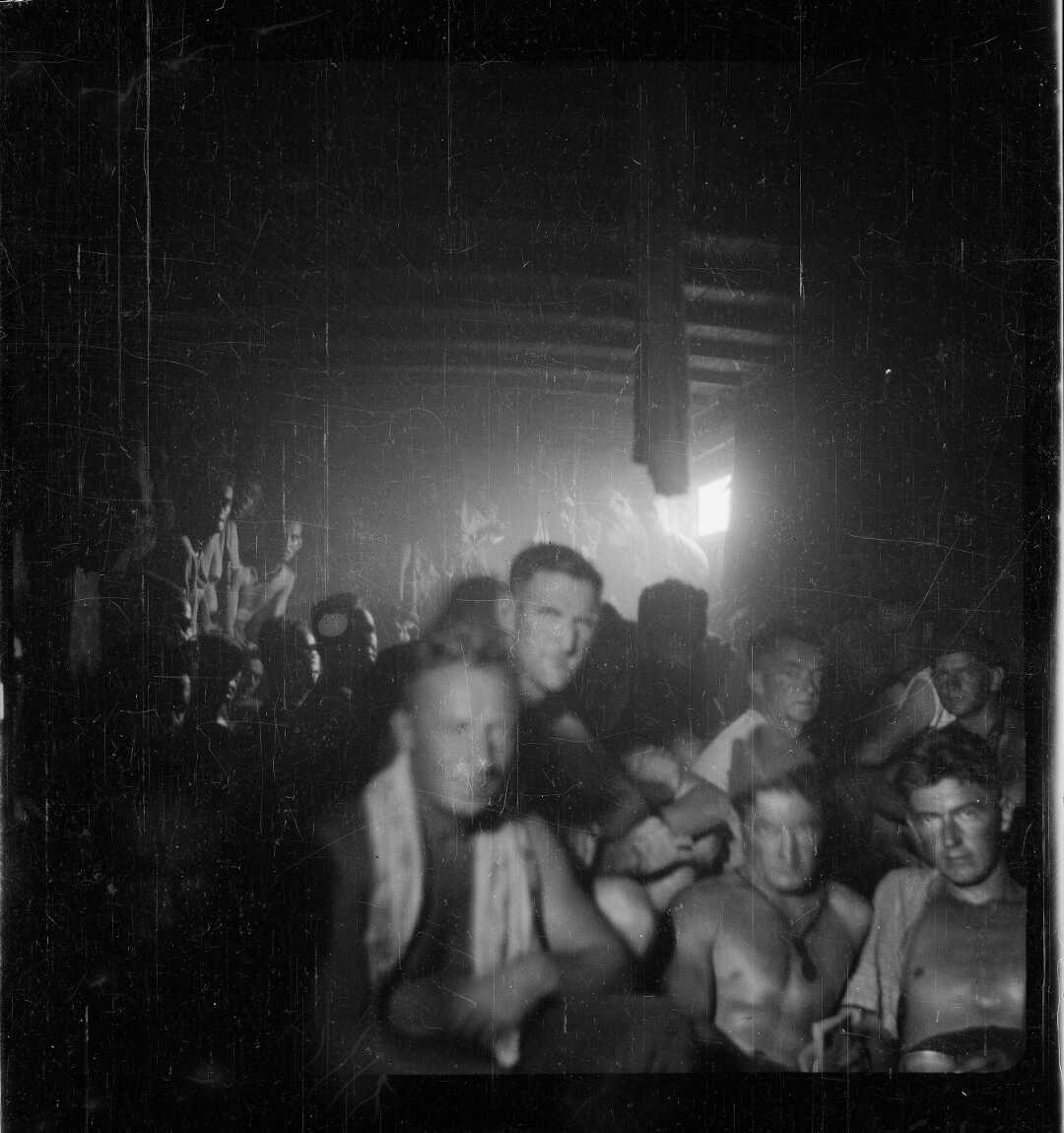
Escape from Greece
Reading time: 19 minutes
It began, as it sometimes does, with an old photograph.
Three men dressed in khaki uniforms standing in front of an exotic facade in some distant land. The man in the middle – hands in pockets, slouch hat tilted at a jaunty 45 degree angle – is my uncle.
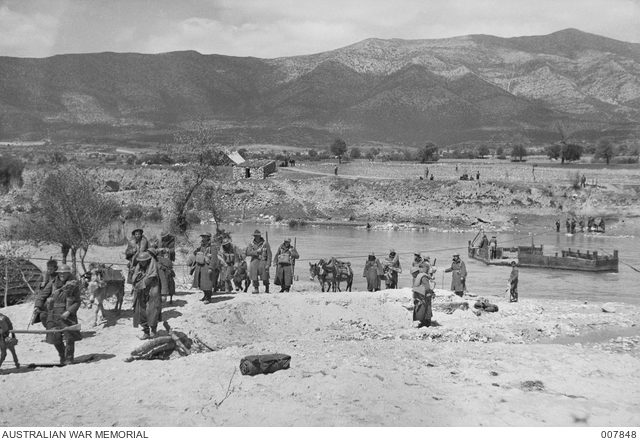
The Battle of Greece – Australia’s Textbook Rear-Guard Action
Retreat doesn’t always mean defeat, sometimes it can be a victory to withdraw in good order and deny your enemy a total victory. This is was the outcome for the allied forces in Greece during April 1941, thanks in part to textbook rear-guard actions fought by Australian units, which allowed 50,732 men to escape the grasp of the advancing superior Axis force. But why were Australian units involved in Greece in the first place?
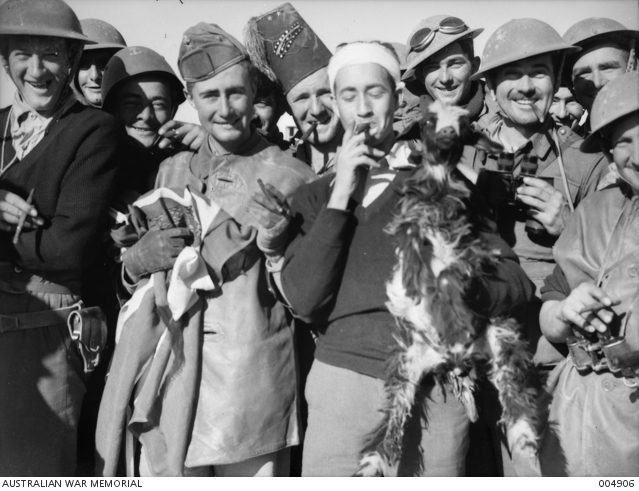
Remembering the Victory at Bardia
Just over 80 years ago, Australian forces fought their first major battle of World War II. Bardia, a small town on the coast of Libya, some 30 km from the Egyptian border, was an Italian stronghold. The Australian troops occupied Bardia, defeating the Italians in a little over 3 days. Australian veteran, Phillip Wortham, simply […]
The text of this article was commissioned by History Guild as part of our work to improve historical literacy. If you would like to reproduce it please get in touch via this form.

